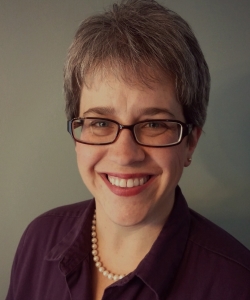
Derek T. Tharp, from the 2012 doctoral cohort, and Katherine Mielitz, from the 2014 doctoral cohort, have been selected as Cary Maguire Fellows in Applied Ethics by the American College in Bryn Mawr, Pennsylvania.
The purpose of Mielitz’s study is two-fold. First, she investigates ethics training at the financial institution. Is it required? Is it provided in-house or outsourced? How is the training conducted? What is its effectiveness and how can it be improved?
Then she examines outreach/community development projects currently in practice by banks within the State of Georgia. Development of outreach audiences, how those audiences are targeted, as well as involvement of bank staff in the projects are a few of the key ideas she scrutinizes.

Tharp plans on applying ethical intuitionism to real-world situations within the financial services industry.
Specifically, he will explore the ethical requirements for financial professionals with disclosures that go above and beyond legal requirements. “I believe that moral realism and ethical intuitionism are particularly useful for reaching financial professionals. As someone who has worked in financial services, I can attest that financial professionals are busy individuals who generally have more interest in their business than they do exploring complex moral theories. Therefore, any insights that rely on complex moral theories–no matter how insightful or well defended–will ultimately fail to engage most financial professionals,” he said.
Relative to other complex moral theories, the utilization of moral realism and ethical intuitionism can immediately be grasped by more financial professionals, he added. The idea that morality exists and that it can be arrived at intuitively presents a comfortable starting place for many who have not studied philosophy at great depth.
Although not a new requirement, ethics training within the financial services industry has become more pronounced since the Great Recession of 2008. The purpose is to inform and reinforce appropriate practice standards and increase social responsibility. The notion of social responsibility encourages industry professionals to find ways to give back to their communities not just to generate profits but to provide jobs and needed financial services.